Jacob Zuma turning himself in is the hot topic of the day. What are the implications of this, and can we trust the ANC again? These are just some of the things that the team - alongside Sipho Shezi (published author on politics and international relations) and Mighti Jamie (multi award-winning international debating and public speaking champion and coach) unpack this week. Brought to you by Nando’s.
Read more08.07.21 Pt 2 - This week Sipho Shezi (published author on politics and international relations) and Mighti Jamie (multi award-winning international debating and public speaking champion and coach) join the team to talk about the current political news - from what’s happening in Eswatini, to Zuma turning himself in, and the implications of him being arrested.
Read more13.02.20 Pt 2 - Is Cyril Ramaphosa a superhero or just a statue? Ace Magashule - art collector or just a political figure who bought a painting without the knowledge that it cost R8m of taxpayers' money? If people become apathetic to politics, what will happen to society at large? It’s SONA Day in South Africa... is it worth watching?
Read moreIn order to address the historic wrongs caused by arbitrary dispossession of land in South Africa, land redistribution has largely received universal acceptance as a means of reparations. But the concept of ‘compensation’ in land reform is something of a contentious issue, and the conversation is both principled and economic. Implementing it even calls for a change to the country’s constitution. While the policy of redistribution without compensation has been given the green light, critics warn against the heavy impact it will have on an economic level. However, optimists believe that this process can occur without adverse economic effects. Is land redistribution without compensation a viable option, and what needs to happen to ensure that it’s successful? The Interchange is made possible by Absa and Tshimong.
Read moreIdeologies like communism and socialism have seen a massive decline in popularity over the years. Countries such as Venezuela are seen as the final nail in the coffin for the economic systems. On the other hand, global capitalism has taken a drastic knock, particularly after the 2008 global financial crisis left many people financially destitute. Ordinary citizens around the world continue to band together to fight corruption and grotesque abuse of funds either by the private sector or by governments. So, given the above, can we take the best of communism and capitalism and create a socio-economic utopia? The Interchange is made possible by Absa and Tshimong.
Read moreLegislation in its best form is designed to be progressive and all encompassing – serving the needs of all. Yet, while a legal system should be unprejudiced; law enforcement and even law-making is sometimes vulnerable to bias. In South Africa specifically, women often seem to be the victims of this bias with gender-based violence and workplace inequalities still rife. If legislation impacting women was to be drafted exclusively by women, and justice enforced by women where women were the victims, would this bring about a desired equality in our legal system and balance the scales of justice? The Interchange is made possible by Absa and Tshimong.
Read moreThe rise of technology has in many ways made everyday life easier and convenient. But, for all its great uses there are also repercussions. The blue collar workforce are losing jobs because technology is replacing them. Tasks that were done by low-level professionals are now performed by inventions such as automated toll boots, supermarket tills and assembly lines in factories. Highly qualified jobs in law and finance are also being threatened by digitisation, robots and other innovations. With the advent of job losses in the 4th Industrial Revolution, would a universal basic income help mitigate the challenge? The Interchange is made possible by Absa and Tshimong.
Read moreIn an ever-changing modern landscape, traditional practices are constantly being questioned and challenged. Many of these controversial cultural practices such as genital mutilation and forced marriages, are rooted in beliefs that have been passed down through generations - making their relevance a contentious issue. In a world where traditions can be treated as fleetingly as a social media hashtag, what role do these old ways still have to play? Should the state have the right to ban or regulate certain cultural practices, especially where human rights are at stake? What must happen when these practices infringe on human rights? The Interchange is made possible by Absa and Tshimong.
Read moreWhile current trends of the 4IR push economic growth in the direction of new scientific and technological innovation, predictions for the 5th Industrial Revolution seem to be completely contrasting. As we look ahead to the 5IR, experts are suggesting that we could be moving towards developing an economy built around purpose, inclusivity and humanity to make the world ‘better’ rather than just ‘more efficient’ or ‘more productive’. With current innovation seemingly supporting a more dehumanised economic future, could android systems be instrumental in stimulating business in times of economic stagnation? Could the technology that’s making man less of an asset be utilised to reintroduce humanisation to meet the demands of a global economy that requires more critical thinking, empathy and civic activism? The Interchange is made possible by Absa and Tshimong.
Read more
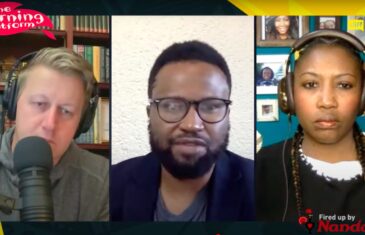

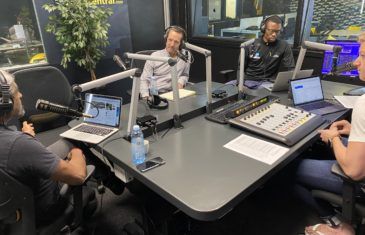
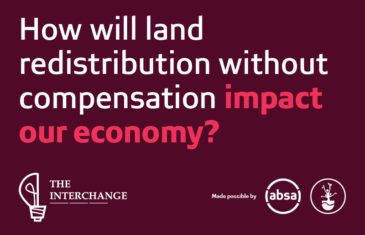
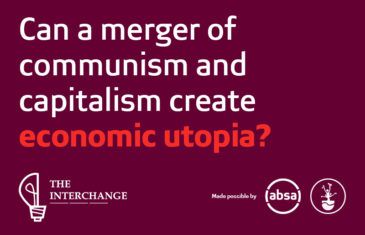
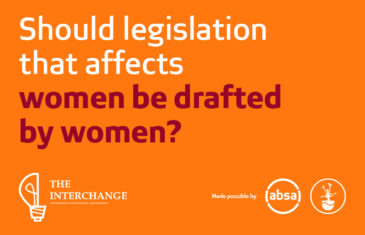
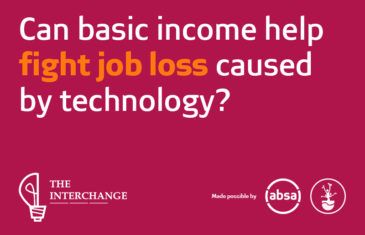
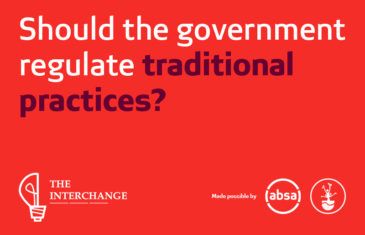
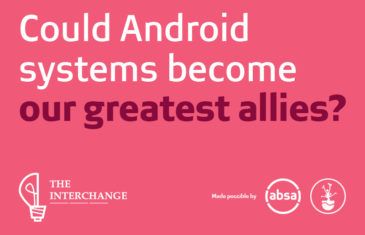
One job for Cyril… just one
20.02.20 Pt 2 - Mhlanganisi Madlongolwana - say that twice without tripping up. The man with a tongue twister title says he is an analyst in recovery, and he didn’t realise that in his sabbatical he’d find American working class reality shows are his vice. Kanthan's expectations for Cyril have dropped, he’s given him one job... nothing more Cyril, focus! Is Bernie Sanders’ greatest life achievement having a post office named after him?
Read more